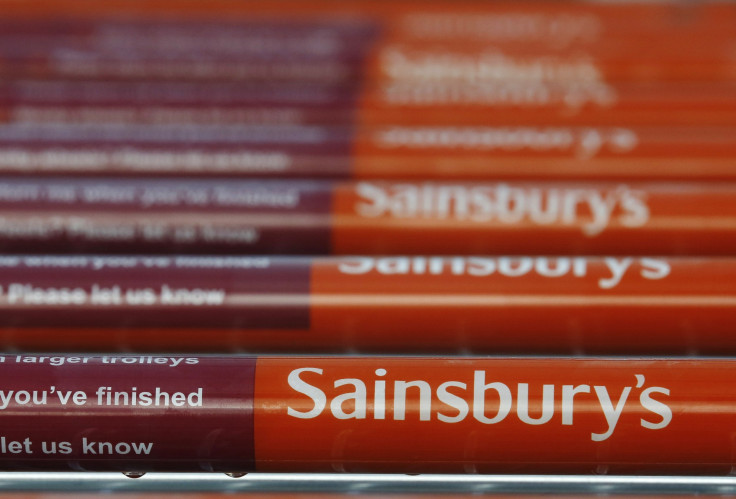Sainsbury's Cuts Full-Year Sales Forecast After Trading Drops

(Reuters) - Britain's J Sainsbury cut its full-year sales forecast on Wednesday after trading fell sharply in the second quarter, dragged down by intense competition in a UK grocery market growing at its slowest pace for more than 20 years.
The group, which trails troubled market leader Tesco and is battling with Wal-Mart Stores' Asda to be the UK's No. 2 grocer, said sales at stores open a year fell 2.8 percent, excluding fuel, in the 16 weeks to Sept. 27, its fiscal second quarter.
That compared to analysts' forecasts of down 3-4 percent and a fall of 1.1 percent in the first quarter.
The firm said as a result of the slowdown it now expected its like-for-like sales in the second half of the year to be similar to the first half, which was down 2.1 percent.
It had previously forecast a small rise of about 0.2 percent.
The trading update is the first to be presented by new Chief Executive Mike Coupe, who succeeded Justin King in July.
"In the second quarter, our performance has been impacted by the accelerated pace of change in the grocery market, including significant pricing activity and food price deflation in many areas," said Coupe.
"These conditions are likely to persist for the foreseeable future," he added.
Coupe plans to provide a detailed strategic update with interim results on Nov 12.
Up until the fourth quarter of Sainsbury's 2013-14 year the grocer had reported nine unbroken years of sales growth.
King was credited with reviving Sainsbury's fortunes during a decade at the helm. But he left at a time of major structural change in the UK grocery industry.
Though consumers are benefiting from little, if any, food price inflation, reflecting price cuts across the sector, they are continuing to spend cautiously and industry sales are growing at the slowest rate for more than two decades.
Consumers are increasingly shopping around to save money and are wasting much less, shying away from big weekly shops in out-of-town stores to buy little and often in local convenience stores and buying more online.
At the same time, discounters Aldi and Lidl and upmarket grocers Waitrose and Marks & Spencer are taking market share from the middle ground.
Shares in Sainsbury's, down 31 percent so far this year, closed Tuesday at 251.5 pence, valuing the business at 4.82 billion pounds.
The whole sector has fallen sharply since Tesco announced on Sept. 22 that it had overstated first-half profit by 250 million pounds. The mis-statement related to income the grocer receives from food suppliers for selling more of their goods.
© Copyright IBTimes 2024. All rights reserved.



















